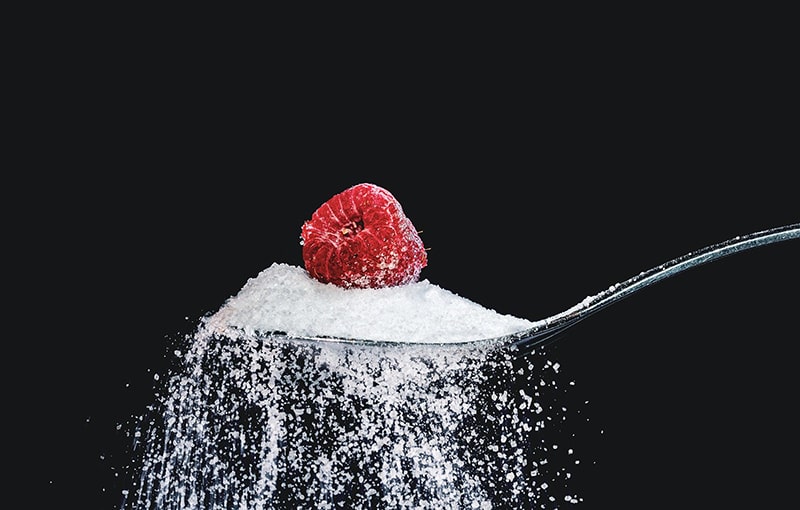Inflammaging is a natural part of life, but we can manage the impact it has on our lives by sleeping, eating and living better
By Dina Gavarieva
The older we get the more likely we are to suffer from inflammation – a process commonly referred to as ‘inflammaging.’
Inflammation is the body’s natural response to injury or infection as it works to heal and protect itself, appearing as swelling, redness, heat, and usually pain.
Unfortunately, as we age, our bodies tend to develop a low level of chronic inflammation without the presence of infection or injury.
This happens for a number of reasons, such as the immune system becoming less effective and the wear and tear of cells and tissues over time.
In a classic Catch 22 nightmare, chronic inflammation also speeds up the ageing process as it further damages our cells and organs.
That’s the bad news. The good news is that inflammation can be managed by following a healthy lifestyle that helps slow down the ageing process.
In this regard, it pays to be aware of some of the factors that contribute to inflammaging:
Sleep deprivation: if it’s a constant struggle trying to find sleep, this can trigger inflammation. Sleep is an essential part of the regenerative process as it allows the body to repair and restore – and manage inflammation.
Nutrition and hydration: if you eat badly and drink rarely, you are effectively feeding inflammation in the body. A poor diet and a lack of water – combined with lifestyle choices such as smoking and excessive alcohol consumption – contribute to systemic inflammation.
Digestive health: we are often told ‘you are what you eat,’ but it’s also true that ‘you are what you absorb.’ Digestive tract issues can impair the absorption of essential nutrients and beneficial gut bacteria, leading to systemic inflammation because the body isn’t getting what it needs for healthy immune function and cellular repair.
Deficiencies: if you are lacking essential nutrients, including vitamins, minerals, proteins and omega fatty acids, you are actively contributing to inflammaging. These elements are paramount for maintaining cellular functions, and a lack of them can seriously accelerate the ageing process.
Toxic overload: the modern world is bombarding us with toxins – whether it’s poor air quality, pesticides, heavy metals or other environmental pollutants – all of which contribute to chronic inflammation. Supervised detox programmes and less exposure to environmental toxins are crucial steps in combating inflammaging.
Impaired drainage and detoxification: to detox properly, all the right channels need to be open to drain the bad guys out of your system. Inefficiencies in the body’s drainage and detox organs – the liver, skin, lungs, lymph, kidneys and colon – lead to the accumulation of toxins, which intensifies inflammation
Metabolic factors: insulin resistance and glycation (the process in which sugars bind to proteins, damaging them and contributing to ageing) are integral components of inflammaging. Managing these metabolic factors through lifestyle changes, such as a balanced diet and regular exercise, is vital in preventing inflammaging.
Immune system imbalances: a poorly functioning immune system can lead to chronic infections, further fuelling inflammation and accelerating the ageing process. Again, you can support immune health through a nutrient-rich diet, regular exercise and stress management.
Oxidative stress and antioxidant balance: high levels of oxidative stress, coupled with insufficient antioxidants, contribute to inflammaging. Antioxidant-rich foods, supplements and lifestyle changes that minimise oxidative stress are crucial.
Hormones and genetic factors: hormonal imbalances and genetic predispositions are additional contributors to inflammaging. While genetics play a role, lifestyle interventions and personalised healthcare strategies can help mitigate the impact of genetic factors on the ageing process.
As you can see, inflammaging is a natural part of life, but we can manage the impact this has on our lives by sleeping, eating and living better. A holistic approach to wellbeing – involving dietary modifications, adequate hydration, regular exercise, supervised detox and stress management – is key to being able to grow old gracefully and also healthily.
Skin ageing secrets
There are multiple and complex reasons why your skin shows signs of ageing, and one of them involves sugar.
Picture your skin as a beautiful tapestry of proteins and sugars. When the proteins react with sugars it’s called skin saccharification, and together they form advanced glycation end products (AGEs). These are the troublemakers that cause cellular dysfunction.

Sugar can be one of the reasons behind skin ageing
Unfortunately for all of us living on the sunshine island, sunlight doesn’t help because UV radiation joins forces with sugar, creating yet more AGEs, which leads to dull looking skin and wrinkles.
To throw in some science, AGEs form through different pathways, like the Maillard reaction and sugar auto-oxidation, slowly accumulating in the skin and messing with its structure.
While scientists are currently exploring natural defences like enzymes and receptors, there are efforts you can make to reduce AGEs in your skin,
Firstly, cut back on sugar and let your body do its job. Enzymes like the glyoxalase system and detoxification pathways are the internal superheroes fighting against AGEs.
Secondly, cut back on sugar! Really, this cannot be stressed enough. High glucose levels induce skin and cellular ageing, and affect collagen fibres.
There are plenty of alternatives to refined sugar.
Natural sweeteners like honey, maple syrup or agave nectar, can satisfy sweet cravings and they are packed with additional nutrients.
Stevia, a plant-based sweetener with zero calories, is another excellent choice for those watching their waistlines or managing blood sugar levels, if used in moderation, of course.
Coconut sugar contains some vitamins and minerals and has a lower glycaemic index compared to regular sugar. And date sugar, made from dried and ground dates, provides a natural sweetness while retaining the fibre content of dates.
These alternatives not only sweeten your food, but also provide nutritional benefits.
Dina Gavarieva is a qualified naturopath practising at Neomed Institute and Medical Centre, Limassol







Click here to change your cookie preferences